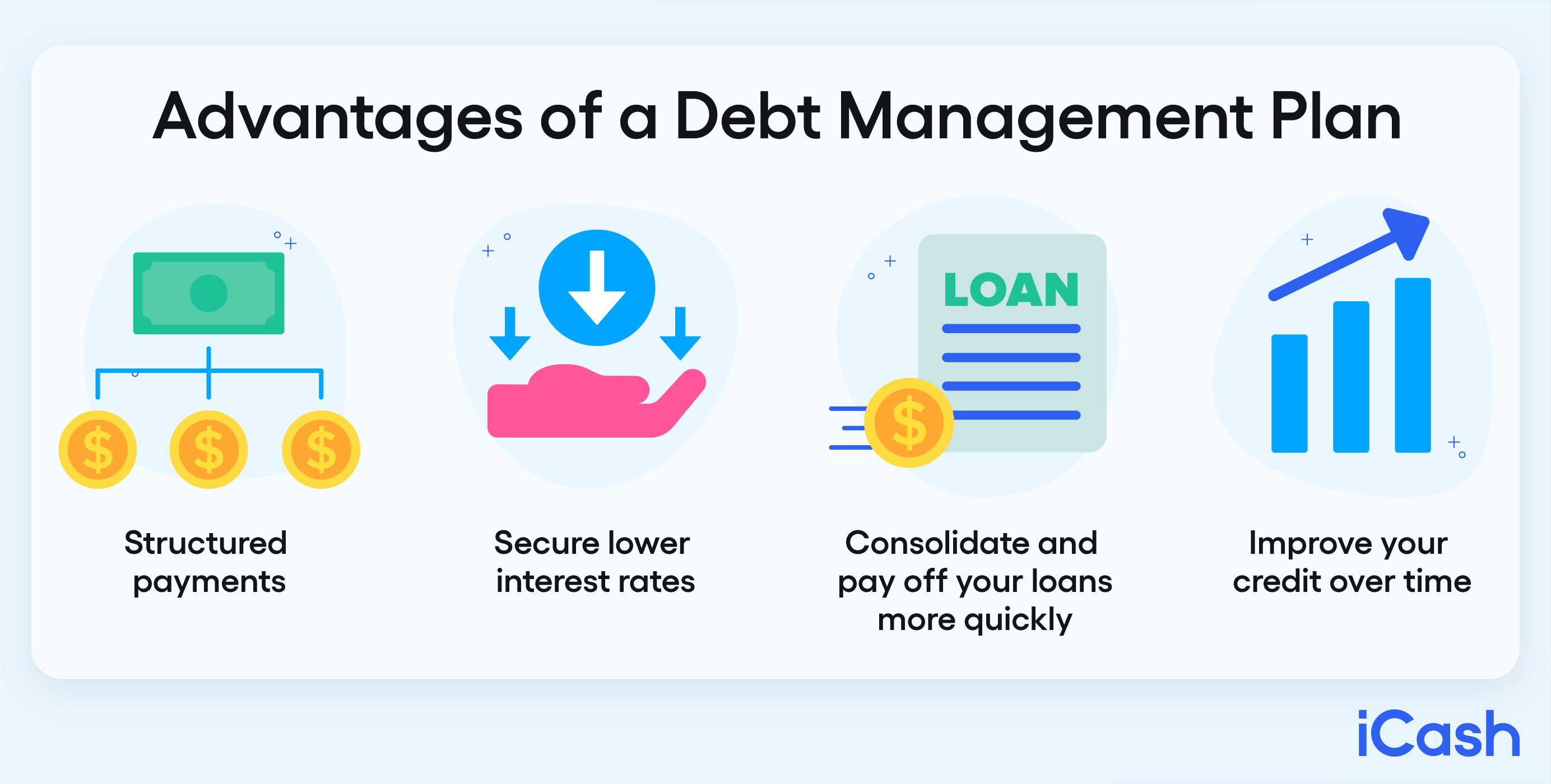Expert Tips on Successful Financial Obligation Debt Consolidation: More Discussion Posted Here
Expert Tips on Successful Financial Obligation Debt Consolidation: More Discussion Posted Here
Blog Article
Every Little Thing You Need to Find Out About Developing a Personalized Debt Monitoring Plan
In the world of personal finance, devising a tailored financial obligation administration strategy is usually the keystone of achieving economic stability and satisfaction. By diligently examining your current monetary responsibilities, setting attainable financial goals, and crafting a functional budget plan, you pave the method for effective financial obligation payment techniques. Nevertheless, the journey to economic flexibility is not solely concerning first planning; it additionally calls for continuous surveillance and changes to ensure continued progress. As you navigate the complexities of developing a customized financial obligation administration plan, comprehending the details of each action is vital to your monetary success.
Evaluating Your Existing Debt Scenario
One have to first carry out a comprehensive analysis of their present debt commitments prior to creating an effective financial debt monitoring strategy. Assessing your existing financial obligation situation is an essential very first step in gaining control of your financial resources. Begin by gathering all essential financial files, such as charge card statements, lending agreements, and any type of outstanding expenses. Develop a breakdown of each financial debt, including the total amount owed, rate of interest rates, minimum month-to-month repayments, and due dates. This detailed introduction will give a clear image of your financial standing and aid focus on which financial obligations to address first.
After assembling this info, determine your total debt-to-income proportion by dividing your month-to-month financial obligation repayments by your month-to-month income. This proportion is an essential sign of your ability to manage current financial obligation levels properly. Additionally, analyze your credit record to determine any type of mistakes or discrepancies that might be influencing your credit rating. Comprehending these elements of your economic scenario will guide you in developing a tailored debt management plan customized to your particular requirements and objectives.
Setting Financial Goals and Targets

When establishing monetary objectives, it's important to be specific, quantifiable, attainable, pertinent, and time-bound (SMART) For example, you might set an objective to repay a specific quantity of debt within a specific period, such as minimizing your bank card equilibrium by $5,000 in the next year - More Discussion Posted Here. By setting clear targets like this, you can track your progression and remain encouraged to achieve your financial debt monitoring goals
Additionally, consider prioritizing your financial debts based on variables such as rate of interest, exceptional equilibriums, and payment terms. By concentrating on high-interest financial debts initially, you can conserve cash in the lengthy run and increase your trip towards monetary liberty. Keep in mind, everyone's economic situation is unique, so tailor your goals and targets to fit your specific demands and scenarios.
Producing a Realistic Budget Plan
Crafting a distinct spending plan is a basic action in efficient financial obligation administration and economic planning. A practical spending plan works as a roadmap for your monetary health, aiding you track your earnings, expenses, and financial debt repayments. To develop a useful budget plan, beginning by listing all your income sources. This includes your salary, side rush incomes, or any various other monetary inflows. Next, catalog all your taken care of expenses such as lease or home mortgage, energies, insurance policy, and finance payments. Variable costs like groceries, enjoyment, and transportation ought to likewise be consisted of. Distinguish in between wants and needs to focus on important expenses and determine areas where you can cut back.
Frequently review and readjust your budget plan as needed to remain on track with your monetary goals and debt repayment plan. By sticking to a practical budget, you can properly handle your debt and work towards an extra safe monetary future.
Checking Out Debt Settlement Approaches
After establishing a realistic spending plan, the next important action in effective financial debt management is to explore different financial debt payment techniques. One usual strategy is the snowball method, where you concentrate on paying off the smallest financial debts initially while making minimal this page repayments on larger debts. This method can aid construct momentum as you see smaller sized financial debts being gotten rid of, giving inspiration to take on larger ones.
Another technique is the avalanche method, which includes focusing on financial obligations with the highest possible rates of interest. By targeting high-interest financial obligations initially, you can decrease the overall amount you pay in passion over time. This technique might be more cost-efficient in the lengthy run, also though it might take longer to see private financial obligations totally repaid.
Financial obligation loan consolidation is one more option where you combine numerous financial debts into a solitary funding with a reduced rate of interest. This can simplify your payment process and potentially reduce the complete interest paid. Nevertheless, it's important to carefully consider the charges and terms connected with loan consolidation to ensure it's the ideal selection for your monetary situation.
Surveillance and Changing Your Strategy

Readjusting your strategy might entail reallocating funds to deal with high-interest financial obligations first, working out with financial institutions for reduced interest prices or far better settlement terms, or checking out additional income resources to expedite financial debt payment. As your original site monetary situation advances, your financial obligation management strategy must adapt as necessary to continue to be reliable. By staying aggressive and flexible in surveillance and readjusting your plan, you can optimize your efforts in the direction of repaying your financial debts efficiently and accomplishing your financial goals.
Conclusion
Finally, creating an individualized debt administration strategy involves examining present financial obligation, establishing economic objectives, producing a practical budget plan, exploring payment strategies, and surveillance and readjusting the strategy as needed. By complying with these actions, individuals can take control of their financial circumstance and job in the direction of becoming debt-free. It is important to stay regimented and dedicated to the read this post here strategy in order to achieve lasting economic security.
One need to initially carry out an extensive analysis of their current financial obligation responsibilities before creating an effective financial obligation administration plan.After establishing a sensible budget plan, the next essential action in effective financial debt management is to explore numerous debt repayment techniques - More Discussion Posted Here.To efficiently handle your financial debt, constant surveillance and modification of your financial debt monitoring strategy are essential elements for long-lasting monetary stability.Readjusting your strategy might include reallocating funds to take on high-interest debts first, working out with financial institutions for lower passion rates or far better repayment terms, or checking out additional earnings resources to quicken financial obligation repayment.In conclusion, creating an individualized debt management strategy involves analyzing current financial debt, setting monetary goals, producing a practical spending plan, discovering settlement methods, and monitoring and adjusting the strategy as needed
Report this page